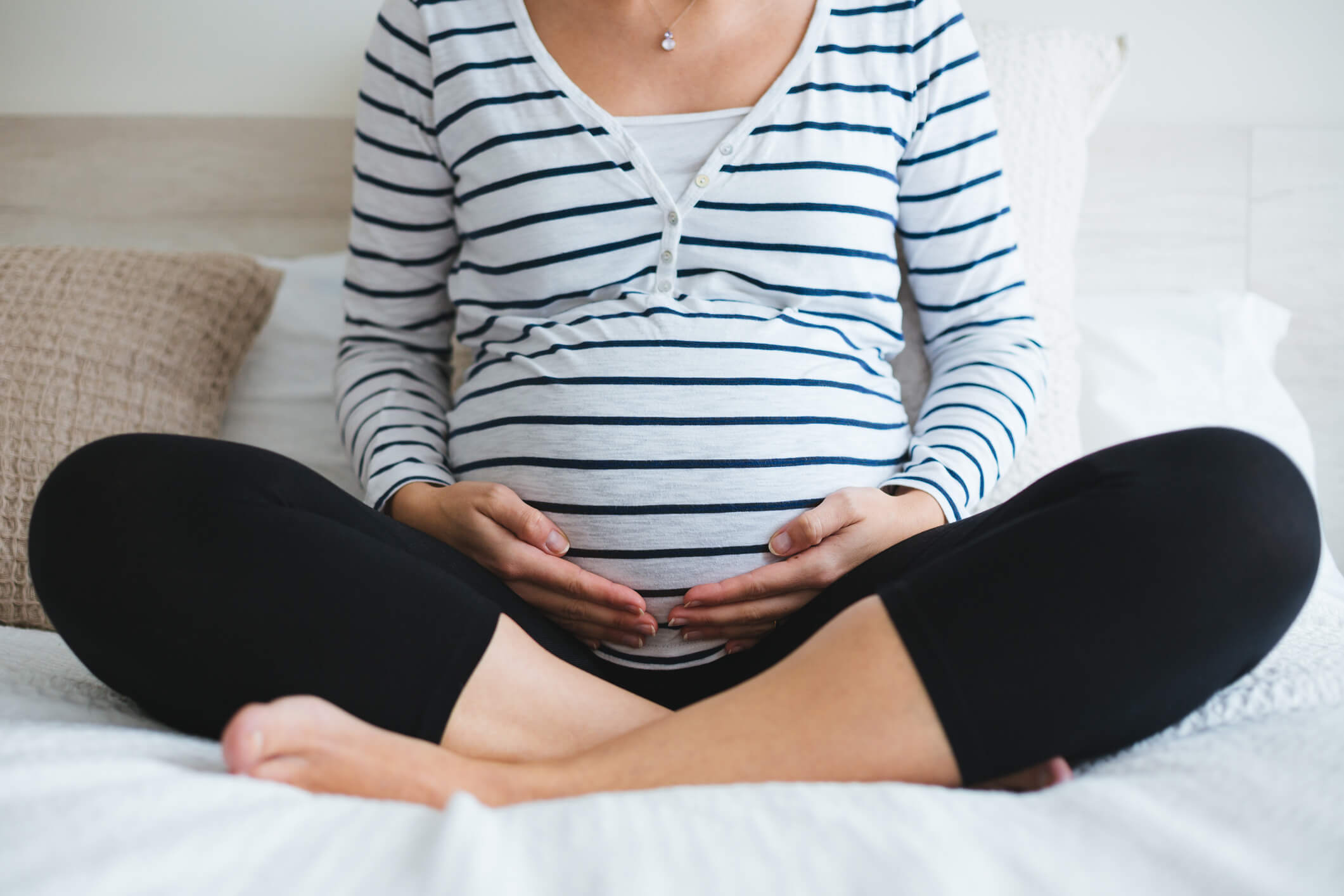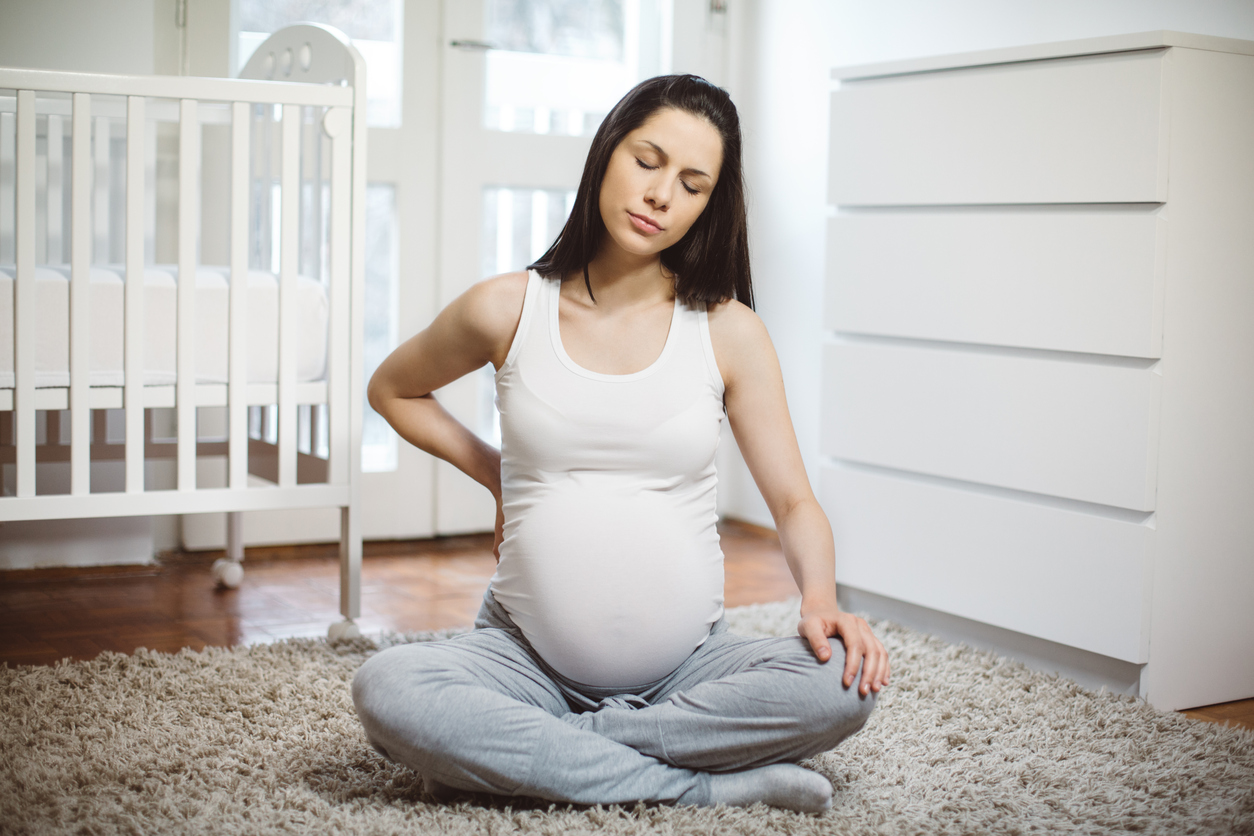-
Pregnancy can be a stressful time for all involved. We sat down with mother of two, Obstetrician and Cabrini Hospital’s Director of Maternity Services, Dr Danielle Wilkins, to find out more about pregnancy and stress.
Is it bad to be stressed during pregnancy?
In her role, Dr Wilkins delivers 12-14 babies every month and said that the majority of couples experience some degree of stress during a pregnancy.
“People start to become concerned about all aspects of their life, and whether they’re doing the right thing for their relationship, their profession, and also for the pregnancy itself,” she said. “You can understand why people do get quite stressed. If they don’t understand that a lot of what they’re feeling is common in pregnancy, or that there are solutions and support, that’s when it can start to feel a bit out of control.”
According to Dr Wilkins, it’s really a matter of how good individuals are at recognising their stress, identifying the triggers and managing it in a healthy and effective way. “I think about 10% of women that I see really struggle with managing their stress, and I would spend time discussing some strategies with them,” she said.
READ MORE: How to manage mood swings
How can stress be reduced or managed during pregnancy?
When it comes to strategies for reducing or managing stress during a pregnancy, Dr Wilkins said her first recommendation is to encourage her patients to write a list. “I like to get people to sit down and think about the things that they’re feeling that are a bit out of control or the things that might be stressing them, and put them in a list,” she said.
“Then I get them to pull out the things that they have absolutely no control over, as they’re the things that we can’t do anything about. The things that are left on the list are the things that we can do something about and we make a plan about how we’re going to manage those things and cross them off as we work through them.”
She said that individuals should look at what they’ve done in the past to cope with stress, as a reference for how to manage these things. “Some people turn to music, some people read to relax and others like to do exercise,” she said.
“The other thing that helps is talking to other pregnant women, or couples. I think then you will start to realise you’re not abnormal or alone, and that really helps.”
For anxiety or stress around labour and giving birth, Dr Wilkins refers her patients to a midwife who runs calm birthing or hypnobirthing classes. “They have been absolutely magical with helping couples look at how they’re going to cope with their labour and birth,” she said.
Can partners suffer from pregnancy related-stress too?
Contrary to popular belief, Dr Wilkins said the partners of expectant mothers often experience stress too, but it’s very rarely talked about.
“Appropriately, there is a focus on the mother, but there is equally as much change ahead for the partner and I don’t think we always get the opportunity to give that as much attention as it needs,” she said. “It’s important that they open up and talk to their partner about how they’re feeling. That alone may be sufficient, and it also makes it easier to have the necessary discussions with professionals who can help.”
Can stress cause a miscarriage?
Dr Wilkins said another common misconception is that stress can cause a miscarriage, particularly in the first trimester.
“People do get very worried that if they are too stressed that they will directly impact their baby’s wellbeing and growth,” she said. “Or, if they do have a pregnancy that ends in a miscarriage in the first trimester, they often blame themselves and say, ‘Oh, I was far too stressed’, but directly the stress can’t cause those complications.
“A lot of studies have been done to see if stress causes miscarriage or pregnancy loss and these imply that it doesn’t directly, but some of the indirect consequences of stress can have an impact on the pregnancy. High levels of stress can elevate your blood pressure, for example.
‘Women can also have heightened responses to their stress, so they may find that they are not sleeping well or they’re eating inappropriately and turning to unhealthy lifestyle choices to manage their stress.”
READ MORE: Common aches and pains and what they mean
What is the relationship between stress and pregnancy hormones?
According to Dr Wilkins, stress levels, in association with hormones produced during pregnancy, can put women at an increased risk of gestational diabetes -- but only if they are suffering from significant and unmanaged stress levels.
“The best trimester for hormones being well behaved is the second trimester; that’s when most people feel the most ‘normal’ and comfortable, they sleep well and they’re in control of their emotions.
“In the first trimester you can feel nauseated, teary and irrational and that definitely builds on stress levels, and in the third trimester you can feel very, very labile in your mood, which can also have an impact on how you can manage your stress.
“In the third trimester there’s also a lot of interrupted sleep associated with being increasingly uncomfortable, and it is also directly related to more hormonal changes (it’s almost like the body is trying to prepare you for getting up in the night to care for your baby).
“That in itself can cause a lot of stress as people get very anxious about not sleeping well and then underperforming the next day when they go to work or not being as alert in social situations. This can become a vicious cycle. ”
What should individuals do if they need help with stress during a pregnancy?
Dr Wilkins stresses that her first recommendation is for the individual, or couple, to make a longer appointment with their General Practitioner (GP).
“They’re an expert in so many areas and they’ll have the opportunity to go through all the things that might be triggering the stress and work through some strategies with you to help manage them,” she said.
“GPs are also linked to counselling services and psychologists to be referred to, if appropriate.
“Make sure that you talk to your pregnancy care provider as well, as having a team approach will provide you with the most support through your pregnancy and into parenthood.”
If you or someone you know is experiencing severe stress, there’s 24/7 support out there. For information and support, you can reach out to the beyondblue Support Service or Lifeline on 13 11 14.
Pregnancy and stress: what you need to know

-
Avoiding cold and flu during pregnancy
During pregnancy, women are at an increased risk of experiencing complications from the flu. Make sure you understand what steps you can take to help keep you and your baby healthy.
-
Choosing childcare that fits your family
Here’s what you need to know when choosing childcare
-
How to avoid 'dad bod'
How to keep fit and healthy with a new baby in the house
-
Expecting a baby during COVID-19
We address some common questions you may have.
-
How your extras can help during pregnancy
Use your cover to stay healthy
-
Pregnancy self-care essentials
Obstetrician Dr Chris Russell shares some advice.
Subscribe to receive the best from Live Better every week. Healthy recipes, exercise tips and activities, offers and promotions – everything to help you eat, move and feel better.
By clicking sign up I understand and agree to Medibank's privacy policy






